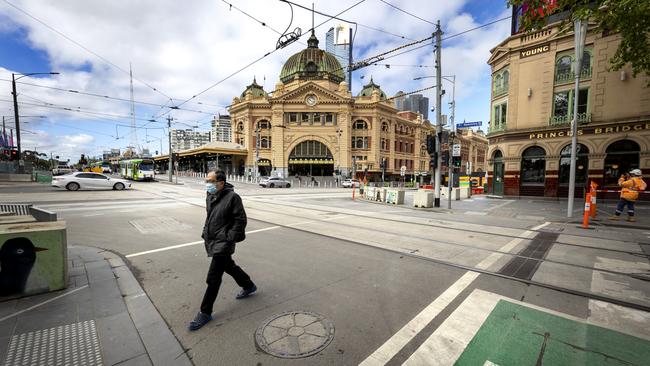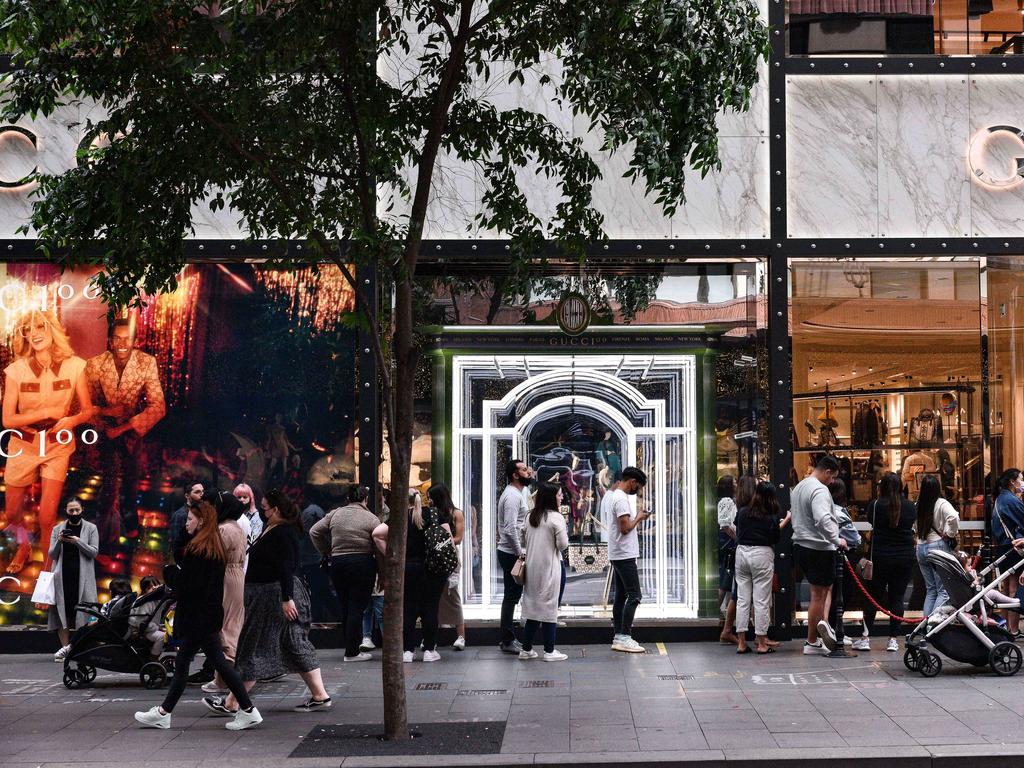
With Omicron, we have entered uncharted territory, pushing consumer and business confidence to all-time lows, and requiring a rethink from government around restoring support for struggling businesses.
With tens of thousands of workers going into isolation every day, retailers, hairdressers, beauty clinics and hospitality businesses have been forced to limit trading hours or close locations altogether. Local supply chains are fully stretched, with delivery costs rising sevenfold, intensifying cashflow pressures.
The Omicron impacts are immense. In a recent member survey, 65 per cent of retail businesses report up to half of their workforce being in isolation, 62 per cent of businesses rate current trading conditions as ‘‘poor’’ or ‘‘terrible’’, while 63 per cent are concerned about the performance of their business in the next three months. The hopes of struggling businesses who were relying on a prosperous holiday sales period have been dashed.
Unlike in 2020 and 2021, businesses are navigating the current challenges with little to no support from government. There is no JobKeeper, no JobSaver and there is little in the way of cash grants to help businesses pay the bills during this unprecedented downturn.
If we have learned anything it is how unpredictable this pandemic is and how quickly trading conditions can change when fresh outbreaks occur. Going back just three months to November, the economic landscape was quite different. Our two largest states, NSW and Victoria, had just emerged from lockdowns, Covid-19 restrictions were starting to ease, people were excited to be back out shopping in physical stores, we had record-breaking Black Friday sales and consumer confidence was upbeat, with people shopping early for Christmas.
November sales were the highest on record, up 5.8 per cent compared to the same time 12 months ago, and retail trade in December also held up well before Omicron took hold.
Trading conditions turned sour post-Christmas as new Covid-19 cases exploded across the country and the January retail trade numbers are set to make for some unpleasant reading.
Consumer confidence this month is at its lowest level in 30 years, and we are seeing equally low levels of foot traffic through our major shopping destinations.
Many retailers have their flagship stores in CBD locations, which are not the thriving hubs they once were. Understandably, people have been avoiding large crowds to avoid spreading the virus, with shopping centres and popular shopping strips suffering significant falls in foot traffic. Our CBDs are the gateway brand to our major cities, and they do a lot to set the tone and vibe for each state and territory.
However, they are ghost towns now as people stay away and continue working or isolating at home. Tourists and international students are slowly starting to return, but migration levels will take years to recover to pre-pandemic levels. The economic recovery for our CBDs will be equally as long.
The best assistance measure for small business is rent relief. Rent is a major pain point and the leasing code of conduct in its original form has now expired in all jurisdictions, leaving most small businesses vulnerable to significant cashflow challenges in the first quarter of this year.
Currently rent relief is only available in NSW and Victoria and the criteria mean not all businesses will have access to the reduced payments.
It is time to extend the mandate for struggling businesses in all states and territories if they have a turnover of up to $50m. This is not Delta. It is not just NSW and Victoria that are primarily affected. Omicron is all over the country and we need the other states and territories to lift their game to provide support for businesses struggling to pay the bills and keep their lights on.
Access to rapid tests has been another barrier for business, but with more supplies coming in, we are hoping the supply challenges will soon be ironed out.
The tests are a critical resource as we adjust to living with Covid-19 and they should be easily accessible and affordable for everyone. The costs of the tests should be underwritten for businesses, so they are not lumped with additional costs on top of the trading impacts they are facing.
We also need to ensure more people can get back to work as soon and as safely as possible.
The federal government has announced exemptions from close contact isolation requirements for people who work in critical industries, but this should be expanded across the economy and for the broader retail sector as well. If you are a close contact, but are testing negative, you should be allowed to get back to work.
We cannot go on like we are currently, with tens of thousands of people being forced into isolation every day.
The existing levels of government support would suggest the pandemic is over and things are now back to normal. They are not, and small businesses in particular need the support of government now more than ever.
Paul Zahra is the chief executive of the Australian Retailers Association.






Retailers have remained resilient over the past two years – navigating lockdowns, cashflow challenges, inconsistent Covid-19 rules and vaccine protocols with a minimum of fuss.